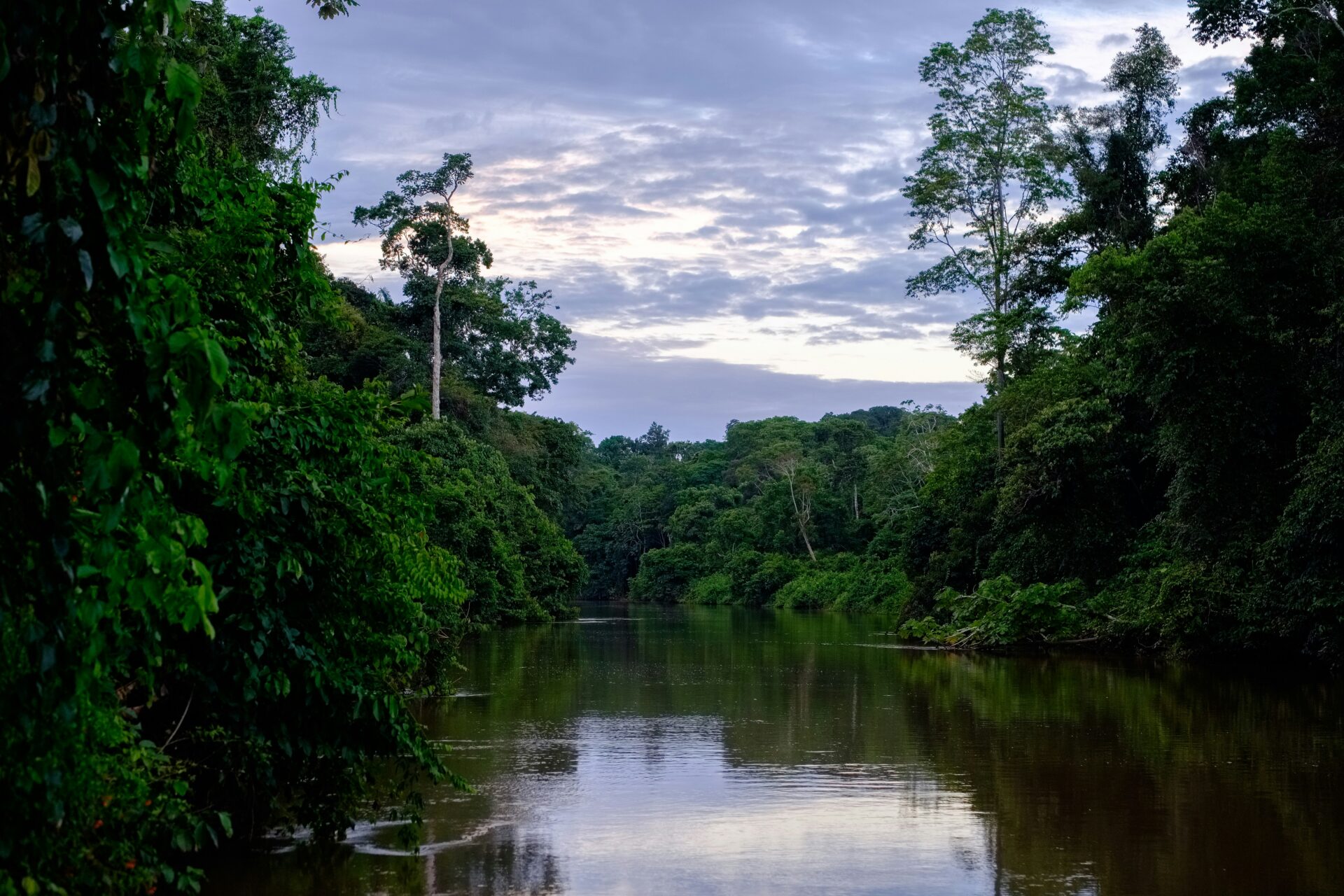Only a few months ago, Ecuador’s streets plunged into total chaos. The country’s soaring crime rates caught the world’s attention in January 2024, when armed men stormed a popular news station and took the staff hostage at gunpoint on live television. In the surge of violence, drug gangs held more than 150 guards captive across several prisons, kidnapped police officers, detonated car bombs, and set fire to buildings, terrifying the nation.
President Daniel Noboa presented these security issues as the problem to be addressed in last Sunday’s referendum. In the public consultation, the 36-year old leader asked citizens whether they endorsed extended military patrolling, longer prison sentences, and the extradition of criminals, among other measures.
A closer look at the referendum’s 11 questions reveals that the president’s professed agenda was not limited to fighting crime and increasing employment. Noboa had also included a question about granting investors access to a highly controversial dispute resolution mechanism, currently prohibited under the Ecuadorian constitution.
While business analysts claim it is essential to securing foreign investment, rights groups warn that it has shielded companies from accountability for environmental catastrophes and human rights violations, enabling them to walk away with millions in arbitration settlements.
Troubling History
Ecuador’s past experiences with the international arbitration clause that Noboa wanted to reintroduce, known as the investor-state dispute settlement (ISDS), offer a cautionary tale. The system allows foreign investors to sue states directly in special international tribunals if they believe their investments are being harmed by government policies or actions.
David Boyd, UN Special Rapporteur on Human Rights and the Environment, does not mince his words in his July 2023 report on the ISDS process. He argues that it “empowers wealthy investors (largely based in the global North) to sue States (largely in the global South) over democratically chosen policies and get paid a king’s ransom in public funds for not beginning or not continuing environmentally destructive activities.”
The purported justification for establishing the ISDS mechanism in the 1960s was protecting investors’ assets in countries considered to have weaker legal systems.
In practice, the one-sided process excludes governments or affected communities from bringing claims against investors, often leading countries to back down from human rights or environmental safeguards out of fear of litigation.
For instance, an investor may bring a country to court for refusing to grant a mining permit, even if this mine faces local opposition and is expected to cause significant environmental damage. Joseph Stiglitz, an economist who won the Nobel prize, has summed up ISDS claims as “litigation terrorism.”
So far, Ecuador has been ordered to pay nearly $3 billion to foreign investors in these claims. Across Latin America, this figure rises to over $33 billion. Funds used to cover the government’s legal costs and settlements are drawn from public budgets, diverting resources away from critical areas such as healthcare, education, or strengthening domestic judicial systems.
“Ecuador’s Historical Memory”
The Ecuador vs. Chevron case epitomizes the imbalance in this system, perhaps explaining the nation’s staunch opposition to ISDS in Sunday’s referendum. It glaringly demonstrates how international arbitration can undermine legitimate human rights and environmental concerns.
“The case is anchored in Ecuador’s historical memory,” argues Luciana Ghiotto, an associate researcher at the Transnational Institute (TNI).
The American company Chevron’s (formerly Texaco) oil operations in Ecuador caused extensive environmental pollution in the Ecuadorian Amazon, including millions of gallons in oil spills and toxic chemical release. This devastated the health and livelihoods of over 30,000 indigenous and farming communities.
The case is anchored in Ecuador’s historical memory.
– Luciana Ghiotto
Ecuador terminated Texaco’s concession due to the ecological disaster. Ecuadorian plaintiffs filed a lawsuit against Texaco, first in New York in 1993, and later in Ecuador in 2003. They won in 2011, nearly two decades into their legal battle.
However, Chevron never paid the billions owed in damages, alleging fraud and corruption in the Ecuadorian court process. The company has pursued several legal battles, including through international arbitration, to challenge the verdict.
In 2018, an international tribunal ruled in Chevron’s favor, ordering the Ecuadorian State to pay the company damages. Ecuadorian courts, however, maintain the 2011 judgment (in favor of the plaintiffs) was legitimate, and that Chevron should compensate affected communities. Ecuadorian claimants have yet to receive money from Chevron.
Though the protracted legal battle against Chevron gained international attention, it is far from an isolated case in Ecuador’s history with ISDS claims. “The central point about ISDS is an asymmetry, an imbalance between the rights of the investor and the rights of the affected communities,” adds Mrs. Ghiotto.
Skeptical Investors
Despite these assessments, business analysts — and Noboa himself — seem to maintain that reinstating access to international arbitration is an important step towards a more prosperous Ecuador.
“Noboa has a pro-market vision, he knows what companies need,” says Eric Viñueza, investment counselor for the Corporation for the Promotion of Exports and Investments (Corpei). The business consultant explains that Ecuador has struggled to attract foreign investment in recent years, and lags behind its Latin American neighbors.
National legal systems, he argues, are powerful when they are perceived to be independent and help secure justice. “It is a matter of perception,” he states, adding that Ecuadorians themselves don’t trust domestic courts.
Countries like Canada appear to share this perspective, which has emphasized the importance of access to ISDS mechanisms in its free-trade negotiations with Ecuador and called it a key interest for its stakeholders. A Canadian Foreign Ministry official recently claimed it has “proven to be an investment attraction vehicle.”
Low-Income Countries Lose
Now the largest foreign investor in the Latin American nation, the Canadian government states its investments in the country have tripled in the span of five years — casting doubt on whether access to ISDS mechanisms is truly essential to stimulating investment.
Canadian investors in the mining and oil and gas sectors have won 59% of their ISDS claims, averaging almost one billion dollars per award. The states that lost their claims are primarily low-income countries.
The Canadian Minister of Export Promotion, International Trade and Economic Development declined to comment on the importance of the ISDS mechanism and on its potential harm to human rights and the environment.
The Ecuadorian Ministry for Energy and Mines and Ecuador’s Ambassador to Canada Carlos Játiva did not respond to a request for comment. Vice Minister Esteban Torres Cobo’s office was not available for interview before publication time.
A Symbolic Victory
Concerns about ISDS prevailed, with a majority of Ecuadorians opposing the mechanism in Sunday’s referendum. This victory against investors is likely to send a strong message through international corridors, particularly for governments like Canada, whose keen interest in this mechanism is now meeting staunch opposition on Ecuadorian soil.
A trend toward the elimination of ISDS clauses from trade agreements has gained momentum. Canada and the US eliminated the ISDS mechanism applicable to them in their trade agreement with Mexico. The European Union is withdrawing from the Energy Charter Treaty, an international agreement that offers investment protections in the energy sector, due to rising concerns over its ISDS clauses. Today, there are more international investment treaties being terminated than created, according to the UN.
Foreign investors, however, may remain skeptical. “This does not mean that investments will not come,” says Viñueza, “but it is unlikely that they will come in the volumes necessary for the economy to develop.”
It may be too soon for activists to declare this as a victory against the investor camp. Ecuador’s constitutional ban on ISDS has faced repeated challenges since it was established, a trend likely to persist.
But for now, Ecuadorian activists maintain the upper hand and hope to inspire other countries. For her part, Ghiotto says it could offer an example for countries seeking to scrap ISDS. “Ecuador is a symbol of the fight against ISDS,” she says. “Ecuador’s rejection of arbitration is going to have a global impact.”





















